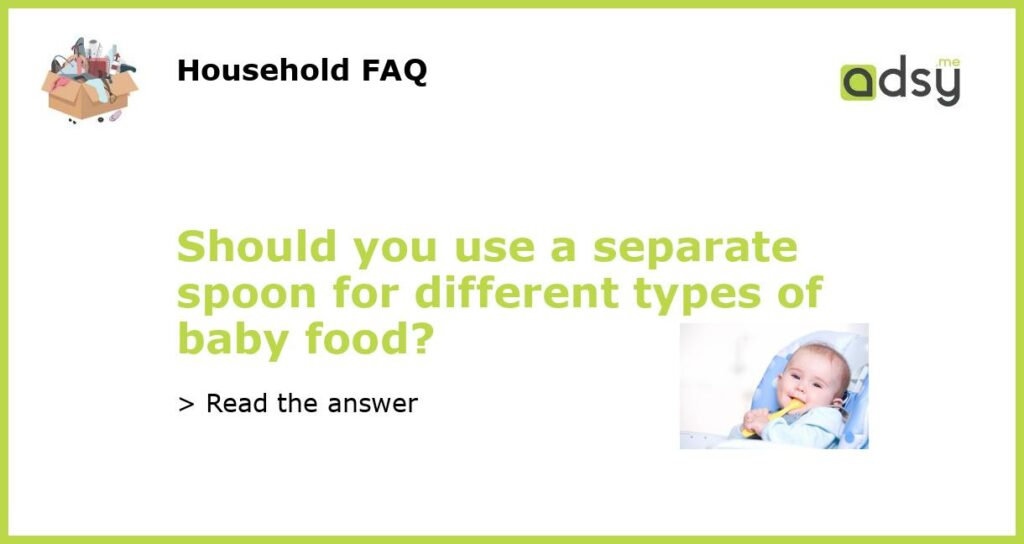As a parent or caregiver, it can be difficult to know the right way to feed your baby. One question that often comes up is whether or not you should use a separate spoon for different types of baby food. In this article, we’ll explore the pros and cons of using multiple spoons and give you some tips for keeping your baby’s feeding routine safe and healthy.
Why Some Parents Use Multiple Spoons
One of the main reasons some parents choose to use separate spoons for each type of baby food is to prevent the spread of germs. When you use the same spoon to feed your baby different foods, there is a risk of cross-contamination. This means that bacteria or other harmful agents from one type of food could transfer to the next type, potentially making your baby sick.
The Other Side of the Argument
Despite the potential benefits, there are also reasons why using multiple spoons may not be necessary. For starters, many experts believe that the risk of cross-contamination is relatively low as long as you’re following basic hygiene practices, such as washing your hands and cleaning dishes and utensils thoroughly.
Another consideration is cost and convenience. Buying and keeping track of multiple spoons can be expensive and time-consuming, especially if you’re a busy parent with a lot going on. Additionally, constantly swapping out spoons can be disruptive to your baby’s feeding routine, causing stress and frustration for both you and your little one.
Tips for Keeping Your Baby’s Feeding Routine Safe and Healthy
Whether or not you choose to use separate spoons, there are some things you can do to help keep your baby’s feeding routine as safe and healthy as possible:
- Wash your hands thoroughly before and after feeding your baby.
- Clean your baby’s dishes and utensils with hot, soapy water or in a dishwasher.
- Avoid giving your baby foods that could be contaminated with harmful substances, such as raw or undercooked meat or eggs.
- Look for signs that your baby may be allergic or intolerant to certain types of food, such as hives, vomiting, or diarrhea.
- Consult with your baby’s healthcare provider if you have any concerns or questions about their feeding routine.
Ultimately, whether or not you use a separate spoon for different types of baby food is a personal choice. While there are some potential benefits to this approach, there are also drawbacks to consider. The most important thing is to prioritize your baby’s health and safety by following basic hygiene practices and being mindful of potential hazards when feeding your little one.






